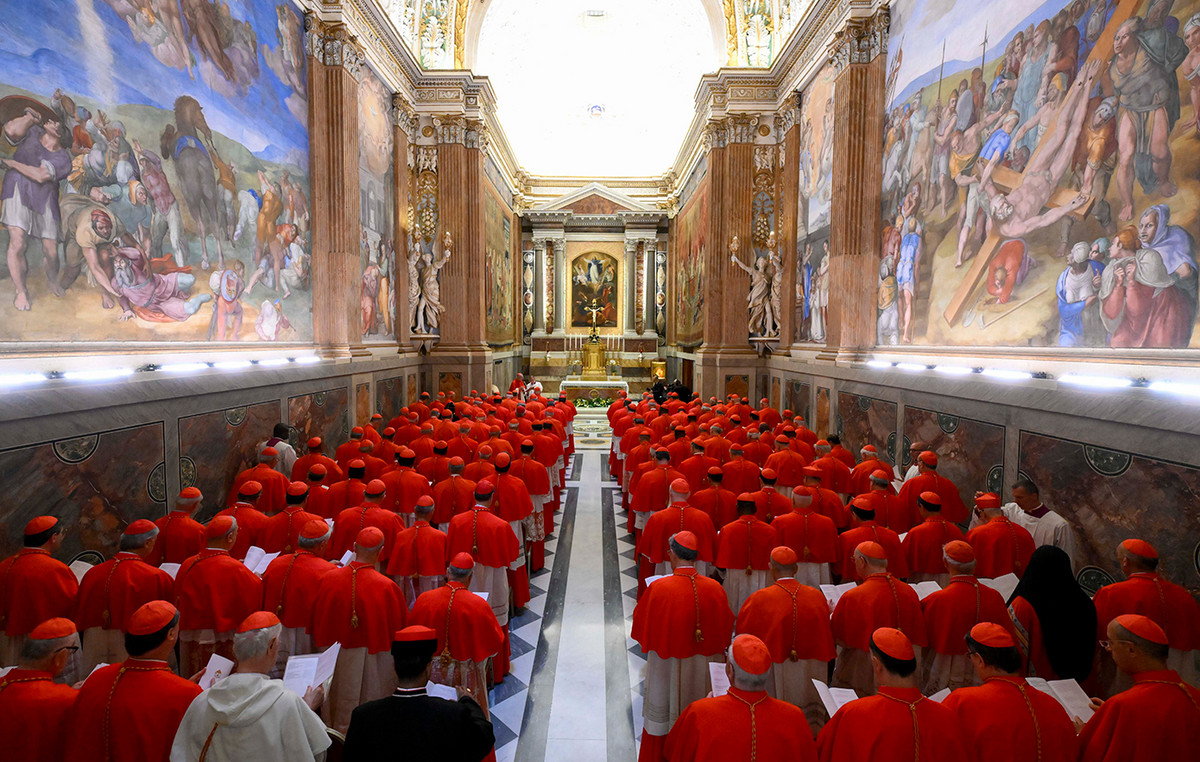The website Politico analyzes the current parliamentary elections. According to her, the parliamentary alliance of French President Emanuel Macron won a huge majority five years ago. This time, there is a new left block in the block that seeks to reduce the seats of the centers. Whether he wins a small “bite” or a big “bite” will determine how France will be governed for the next five years.
Parliamentary voting in France will take place in two rounds, on June 12 and 19. But for citizens living abroad, the first round of voting closed last Sunday. As expected, Macron’s candidates prevailed in most constituencies, with the notable exception of Spain, Andorra, Portugal and Monaco, where former Prime Minister Manuel Valls was ousted. For the first time, every expatriate was able to vote electronically, although many reported difficulties in doing so.
According to polls by Politico, the intentions of voting in the first round are breast to breast between the Ensemble, the governing coalition, and NUPES, the left-wing alliance under Jean-Luc Mélenchon.
Polls suggest the Ensemble (Macron’s alliance) is likely to garner a majority. This is mainly due to the fact that the left’s vote is more concentrated in fewer, mostly urban, constituencies, compared to the more widespread centrist vote.
But other factors also play a role, such as turnout, demographics and the voting system itself. To understand the dynamics of parliamentary elections like real professionals, we need to dig deeper.
Parliamentary elections in France are held every five years – two months after the presidential vote (the country changed from a seven-year to a five-year presidential term in 2002). Parliamentary elections determine the members of the National Assembly, the lower part of the French parliament.
Candidates are vying in two rounds to be elected as representatives of a constituency. These were last drawn in 2010, when they represented 125,000 people each, although population numbers have changed since then. There are 577 constituencies, 11 of which are abroad.
A candidate can win in the first round if he receives at least half of the votes cast, as well as the votes of at least a quarter of the registered voters in the constituency. Otherwise, the candidate who receives the most votes in the second round becomes an MP.
To reach the second round, candidates must receive votes from at least 12.5% of registered voters. If only one of them achieves this, he will face the next one who will collect the highest percentage. If no one succeeds, the first two will face off.
Putting a first-past-the-post system instead of a proportional system – candidates in second place lose even if they get 49% of the vote – elections tend to produce a clear majority in parliament.
It is clear that the fewer seats the ruling party has, the more control it will have. But an absolute majority of 289 seats or more means no bargaining with other parties is required to pass legislation.
Due to their vast majority, the “Macrons” have so far managed to pass laws, voting about 354 since June 2017 – when Macron took the helm of the Élysée – even though some of the most controversial were revised after the intervention of the Constitution Council.
Voters tend to elect MPs from the same political family as the president they just elected, but according to the Ipsos poll, things could be slightly different this time: Up to one-fifth of those who voted for Macron in first round of presidential elections intend to vote a left or right party in the legislature.
If the Ensemble loses enough support, Macron’s central party, La République en marche (LREM), may face a greater challenge from its partners, especially the Mouvement Democrate, led by former Justice Minister François Bairou, and the Horizons, led by former Prime Minister Edouard Philippe. It is widely speculated that Philip is preparing his own candidacy for the presidency.
The Ensemble may not even be able to win an absolute majority, so it will have to look for more coalition partners to increase its seats. The traditional conservative party Les Républicains would be the obvious choice, but party leader Christian Jacob has ruled out any alliance.
Feeling the need to reinvent itself, LREM will be renamed Renaissance in July, based on a new statute that, according to Le Parisien, aims to become stronger and more attractive. The performance of Macron’s legislative vehicle in the parliamentary elections will determine whether a painting or a completely new machine is needed.
Melanson Prime Minister?
These words adorn the election posters of the leader of the radical left NUPES, who is so sure of a possible victory that he has referred to Élisabeth Borne, the newly appointed Prime Minister of France, as “his predecessor”.
Mélenchon believes that NUPES can defeat the Ensemble, win the majority, overthrow Borne and launch the first “cohabitation” government in France – where the president and prime minister belong to opposite parties – since 2002.
Such a situation neutralizes the president’s ability to implement reforms, handing over most of the policy-making power to the prime minister and their majority in parliament.
Our polls show that the chances of this happening are extremely small. Mélenchon will not run for re-election to parliament in Bouches-du-Rhône, Marseille, insisting he be prime minister. However, Mélenchon – even without a seat in parliament, let alone a prime minister – could prove to be more influential than ever. In the most likely scenario of becoming the main opposition force in parliament, the dynamic orator leading the new French left will not hesitate to block Macron’s agenda.
With the war at the gates, political stability as well as who has the power to pass laws in France, a leading force in the EU, are of paramount importance.
People are watching the way France promotes European sovereignty and enforces EU landmark rules. In the unlikely event of a major upheaval, we could have a Eurosceptic prime minister in the person of Mélenchon, who plans to “disobey” EU rules. And this in case he takes a softer stance than the one he has often adopted in the past.
If the president retains his majority, foreign politicians will also see the fruits of the plethora of laws passed over the past five years and how they have affected French society.
“There are things we have voted on and we need to do now,” said Bruno Studer, LREM MP and chairman of the parliamentary committee on culture and education. “We need to make sure they are implemented properly.”
Adhering to existing laws passed under Macron, as well as promoting new ones, may not be as simple under a weaker presidential alliance, especially for controversial reforms such as pensions.
In the long run, demographic change is something that must be followed. As it turns out, France’s support for central politics will be replaced by more left-right divisions as its population ages. This is a trend that will change the face of one of Europe’s key powers.
Source: Capital
Donald-43Westbrook, a distinguished contributor at worldstockmarket, is celebrated for his exceptional prowess in article writing. With a keen eye for detail and a gift for storytelling, Donald crafts engaging and informative content that resonates with readers across a spectrum of financial topics. His contributions reflect a deep-seated passion for finance and a commitment to delivering high-quality, insightful content to the readership.







